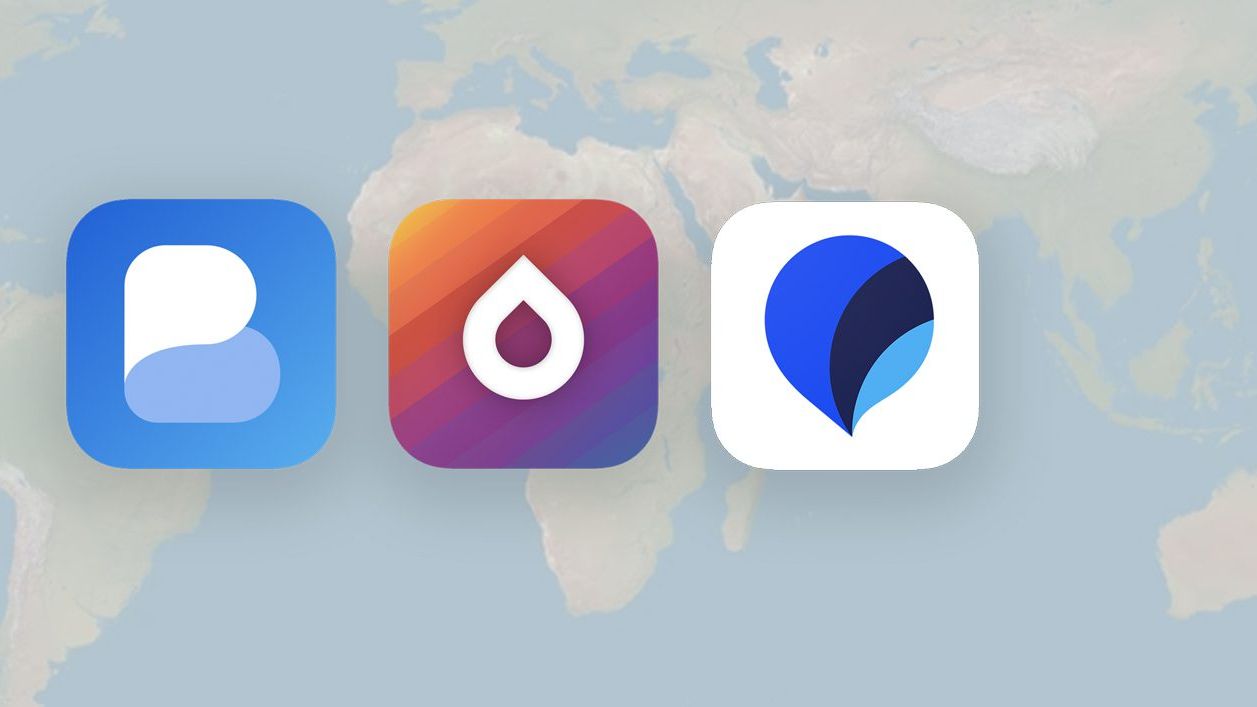

Looking to learn a language? Here are the best apps to download.
You promised yourself that you’d learn a new language during lockdown. Seven weeks into self-isolation, it’s time to download these apps and make a start.
Words: Jonathan Wells
Remember when the lockdown began? When we all scrabbled for our rose tinted glasses and tried to discover the elusive silver linings of self-isolation? Oh, what dreams we had! We’d sear, steam and sauté our way through cookbooks. We’d finally try to grasp how to play a musical instrument. We’d open our minds to learning a new language. We were so hopeful.
And yet, seven weeks down the line, we’ve not managed much of it. Turning yourself into a Michelin-starred man hit a stumbling block when your first soufflé sank. Your guitar has been sitting in the corner since you snapped your A-string halfway through Seven Nation Army. And you’ve not even attempted to learn a language yet.
Which means it’ll probably be third time lucky. With the end of lockdown on the horizon, we’ll soon all be jet-setting and globe-trotting off around the world — and wouldn’t it be nice to order your first coffee upon touchdown in a native tongue? We’ve rounded up six of the best language apps available to ensure that, whenever this ends, you’ll come out of lockdown un hombre nuevo.
For the tried and tested option, try Babbel
Not only is Babbel free, meaning you have nothing to lose, but it’s also wildly popular. Millions of people have downloaded this little orange app since it was founded, and its short, interactive lessons take old school language schooling and flip it on its head. It’s backed by researchers at Yale University, and focuses on confidence. Well worth a go.
When was it founded: 2008, How many languages are offered: 14, Which one should you try: We’d opt for Danish. It’s close to home, but more of a challenge than French or Italian. And they have great pastries, too.
For the funner way to learn, try Duolingo
You’ve all seen this tiny green bird, haven’t you? Smirking out from your friend’s home screen — because they were learning Norwegian Bokmål before the lockdown, don’t you know? And, while Duolingo may have some eyebrow-raising options (anyone for Klingon or High Valyrian? No, we thought not…) it uses mini-games and quick lessons to take the pressure off the learning process.
When was it founded: 2011, How many languages are offered: 23, Which one should you try: Forget the fictional offerings, and have a crack at Greek. It may be a new alphabet, but Duolingo makes it seem surprisingly approachable.
For the conversationalists out there, try Busuu
If you’re one of those people who thinks that living somewhere is the only way to truly learn a language, then tough. Lockdown has taken that option away from us. Thankfully, Busuu is an AI-powered alternative to upping sticks and learning a language on the fly. Through self-study language courses, you’ll get the opportunity to interact with actual native speakers around the world — making this app as social as it is useful.
When was it founded: 2008, How many languages are offered: 12, Which one should you try: Given the social element, we’d err on the side of safety. Stick to a European language like German or Italian, and you’ll be chatting like a native in no time.
For those wanting to teach and learn, try Tandem
Less a language-learning app and more a community of like-minded people, Tandem is essentially one great big chatroom — albeit one with over 100 languages messaging away with one another. You all teach each other, with voice call and audio note functionality also offered for pronunciation, and an in-app translation feature to get you off to a solid start.
When was it founded: 2015, How many languages are offered: Amazingly, 148, including 11 sign languages., Which one should you try: Obviously Icelandic. Not only will you not find it anywhere else, but the Scandis are known for their patience — which will undoubtedly help here.
For those looking for a game, try Drops
Another relative newcomer looking to snatch Duolingo’s language crown, Drops may have a terrible name, but its interface is incredibly intuitive. Making a game out of learning languages, the easy lessons not only make the whole thing fun — but addictive. And, if you’re looking to refine your vocabulary in one specific field, they have targeted lessons on any number of topics, from pastries to politics to pets.
When was it founded: 2015, How many languages are offered: 39, Which one should you try: It’s visual learning, so we’d take the leap with this one. That’s right, it’s Mandarin time.
For those in a rush, try Pimsleur
Another questionable name; another great app. Designed by publishing giants Simon & Schuster, Pimsleur is uniquely focused on conversational skills, taking the onus off vocabulary and pushing practical skills to the fore. The big draw on this one? It claims to teach you rapidly, and have you speaking conversationally in a language of your choice in just 30 days. Impressive stuff.
When was it founded: The Pimsleur brand has been around for over half a century. The app launched in 2018., How many languages are offered: 51, Which one should you try: Brazilian Portuguese jumps out at us here. Not only is it a fun one to learn, but it’ll stoke your wanderlust for the end of lockdown.
Looking for another way to bring adventure back into your life? Why not hang up a vintage travel poster?
Join the Gentleman’s Journal Clubhouse here.


